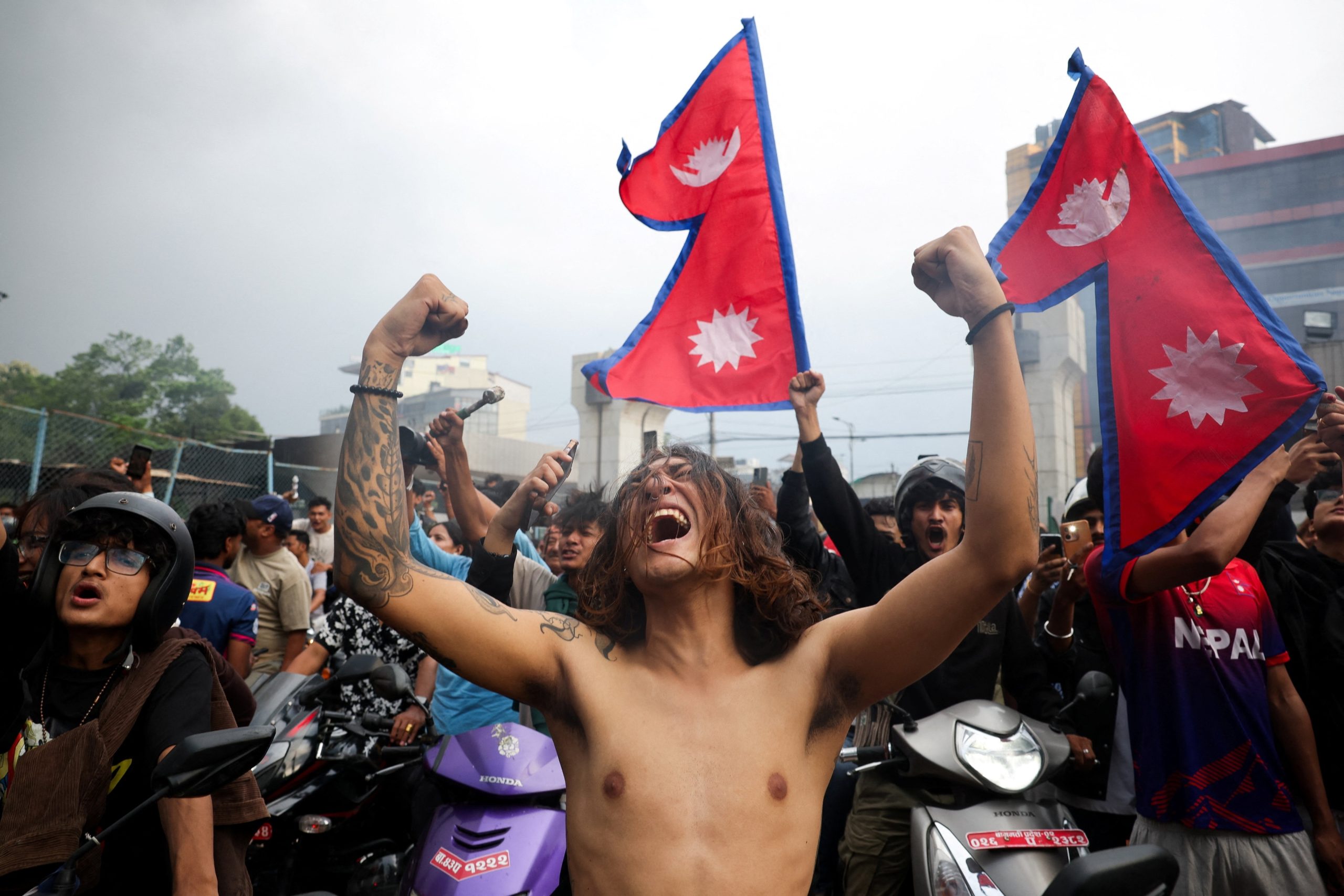
इजरायली सेनाका अधिकारीले दिए विपिन जोशी जीवित नरहेको जानकारी
काठमाडौं । इजरायलमा हमासद्वारा नियन्त्रणमा लिइएका विपिन जोशी जीवित नरहेको इजरायल...

Nepal is evolving in such a way that few people could have ever expected. The Kathmandu streets and the Pokhara streets are filled with the loud voices of the youths who want justice, equality and an opportunity. The social media sites are full of inventive content, political discussions, and cultural outburst. The future of this change is Gen Z, as it is not only a generation that is growing in Nepal but also growing with Nepal and is significantly influencing its future.
However, what about these young Nepalis? What are the Gen Z mean, and how are they affecting society? This article will discuss the Gen Z, their age, values, culture, activism, and how they are transforming Nepal by 2025.
1. Who Is Gen Z? Understanding the Generation
Whether you have ever questioned who or what Gen Z represented, the answer is both in their age and mentality. The term Gen Z or Next Gen Nepal and Gen Next Nepal are used to describe persons born around 1997 to 2012. The age group of Gen Z will be approximately 13 to 28 in the year 2025. This generation has been raised in an environment that is technologically dominated, socially media oriented, and information saturated.
Generation Z in Nepal is digitally literate, socially conscious and culturally diverse as opposed to the past generations. They know the world problems but are firm in Nepali culture thus forming a special combination of modernity and tradition. Some might question whether 2015 is Gen Z. Technically, the post 2012 cohort would be considered Gen Alpha, and today in Nepal, the real Gen Z would be teenagers and adults just starting to define education, careers, and politics.
2.Gen Z Is More Than just an Age Group
It is essential to know what do Gen Z mean in Nepal context. Gen Z is not a demographic, it is a state of consciousness, of action and creativity. They are: Digital Natives: Born in technology, at home with smartphones, applications, social media. Socially Responsible: Concerned with climate change, gender equality, and empowering the youth. Independent Thinkers: They are ready to argue with traditions, fight against nepotism and demand to be told the truth. Cultural Innovators: And through the language of Gen Z and memes, as well as creative expression, one can impact culture in Nepal.
Essentially, what are Gen Z in Nepal? They are young people who do not want to wait till something changes- they make changes themselves.
Consider a stroll in a university campus in Kathmandu in 2025. Students are not attending lectures alone. They are arguing over education reform, they are running digital campaigns, they are developing startups. A significant number of them utilize social media, which is represented by such applications as Tik Tok, Instagram, and YouTube, as the means of both entertainment and social influence.
Yet life is not easy. Some of them lose their jobs, experience problems with mental health, and are under social pressure. The rural youngsters have a difficult time in accessing technology and quality education whereas urban youngsters are in a hyper connected world which tends to exaggerate inequality. Nevertheless, Gen Z is optimistic and not beaten down by these circumstances; being resourceful and linked, Gen Z can surmount the difficulties through resourcefulness and team-building.
To comprehend who is Gen Z, one can take Gen Z lingo. It is not just words, but it is identity. Gen Z is Nepali mixed with English and internet slang to produce a new form of humor, frustration and hope in Nepal. Their style of communication is innovative, unique, and universal due to viral Tik Tok trends and Instagram memes.
These are not merely expressions to have fun, but expressions of cultural change. They assist Gen Z to exchange ideas, organize others, and build an online community that is geographically dispersed.
The most obvious influence of Gen Z in Nepal, perhaps, is their activism. The 2025 Nepalese Gen Z protests were a turning point as a result of being frustrated with corruption, nepotism, and inequality.
A viral campaign, Nepo Kid, already had revealed the decadent living patterns of the children of politicians, in terms of contrasting privilege with the hardships experienced by the average young people. A lot of them are youth who are migrating to foreign countries to get low-paying jobs. The feeling was captured in a viral Tik Tok post.
Nepo Kids have been flaunting their lifestyle on Instagram and Tik Tok, however, they do not indicate how they acquired the money.
Gen Z, when they could not voice their opinions through social media due to restrictions, resorted to going to the streets with protests. Young people in Kathmandu, Pokhara, and other cities protested against being suppressed. It was not merely about the social media in these protests. They were years of frustration and need to be accountable, given opportunity and justice.
Gen Z Nepal is caught between the two worlds: it is between respecting tradition and looking to modernity. They are festival makers, family-respectful and cultural heritage-appreciative. However, they do not fear to break the old conventions, get creative in the workplace, or push more liberal agendas.
It is this equilibrium that renders the Gen Z in Nepal so uniquely able to shape the country. They offer new thoughts based on cultural identity and it will be possible to prove that tradition and modernity are compatible.
The vision of Gen Z on Nepal includes education. They are more practical, digitally literate and exposed to the world unlike in the past. They have been championing education system reforms to ensure that the education system is more inclusive, skill-based and technology driven. Students have been trying online education, coding courses and some innovative entrepreneurship in cities. Other programs that are being implemented on rural areas to enhance their access to digital tools are also assisting in closing the educational divide giving power to youth who would otherwise lack the chance.
Another field that Gen Z in Nepal is making its mark in is culture. They are changing the Nepali youth culture, whether it is music or fashion, social media trends, and content creation on the internet. Nepali Gen Z is a blend of traditional and modern music in music and entertainment, which is cut across both domestic and global clients. The streetwear, conventional clothing and the mode of expression are being redefined by the urban youth in the world of fashion. Blogs and social media in the digital communities are developing new cultural discourses that embrace inclusivity and innovation. Their Gen Z lingo has consolidated their identity to be trendsetters and thought leaders.
Activism of the Nepalese Gen Z is not confined to protests. They are doing political discourse, civic movements and social activities. The social media is being used by young Nepalis to expose corruption and promote transparency and hold leaders accountable.
The Nepalese Gen Z movement in 2025 is not the only case. They demonstrate that this generation does not appreciate the passive involvement. They desire to be on top, innovative and disrupt systems that are no longer benefiting the majority.
Gen Z in Nepal is not just a demographic by 2025. This is an influence that controls the identity, economy, and administration of the country. They have been found to express their influence politically by youth led activism and civic involvement.
Gen Z is starting businesses, becoming innovative and transforming consumption in the economy. They are inventing the new media, music, art and fashion trends in culture. They are promoting gender equality, environmental and mental health awareness in the society. The generation is the hope, strength, and imaginative one of Nepal which will make sure that the future of the nation is inclusive, innovative, and dynamic.
In Nepal, Gen Z does not simply represent a generation as of 2025. They are leaders, activists, creators and innovators. They oppose inequality, adopt technology and pressurize social, cultural and political change.
Knowing who Gen Z, what Gen Z, and what Gen Z mean in Nepal provide a glimpse of the future of the country. They speak loudly, have a clear vision and their influence is already taking shape of the country.
The change in Nepal is being scribbled in the works, imagination and aspirations of the Gen Z. They are change agents, who have a one foot in the past and the other in modernity, and whose actions will steer the nation to a future that will be fair, innovative and full of life.
Contributing Writer
Advertisement